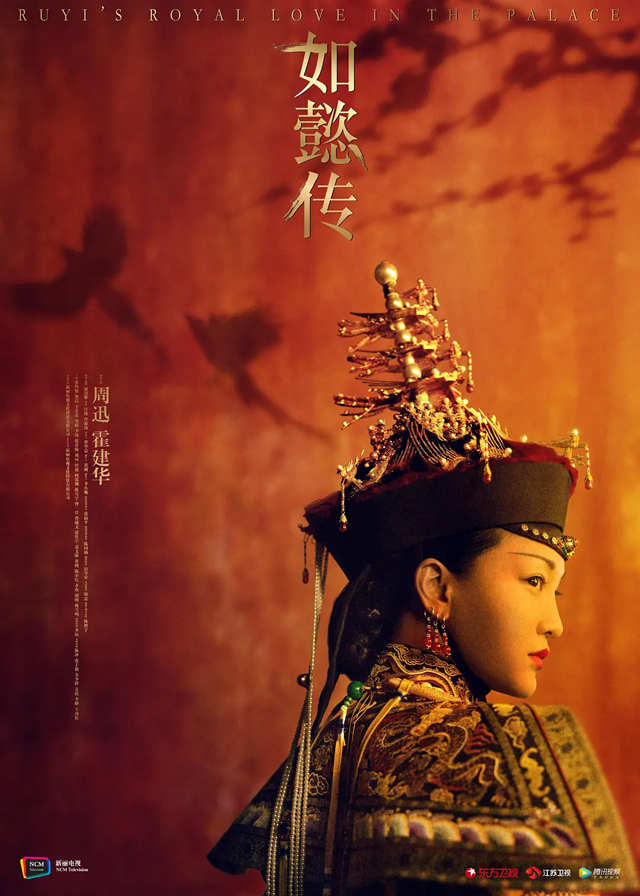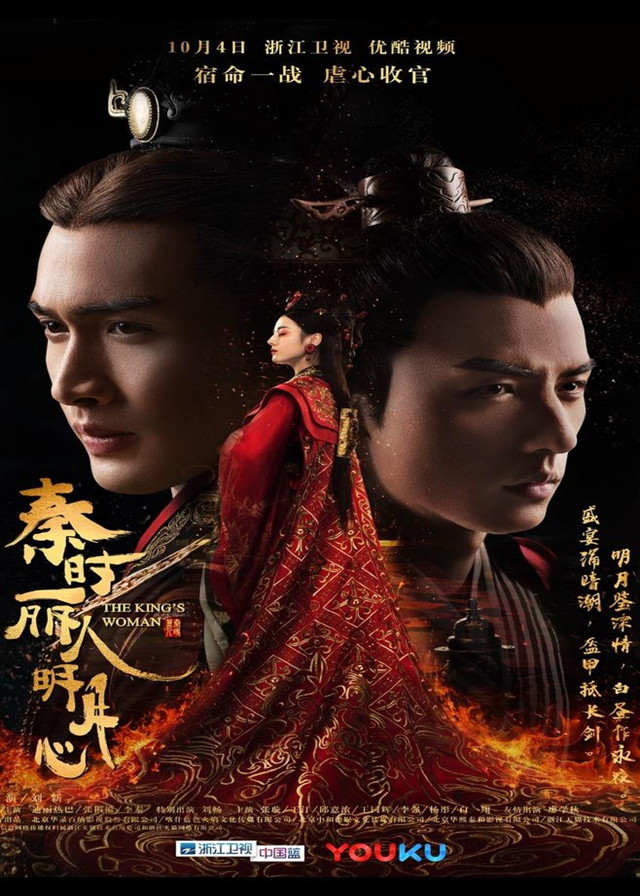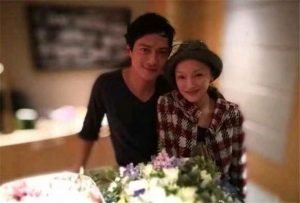Ruyi's Royal Love in the Palace Episode 56 Recap
> Ruyi's Royal Love in the Palace Recap
- 1
- 2
- 3
- 4
- 5
- 6
- 7
- 8
- 9
- 10
- 11
- 12
- 13
- 14
- 15
- 16
- 17
- 18
- 19
- 20
- 21
- 22
- 23
- 24
- 25
- 26
- 27
- 28
- 29
- 30
- 31
- 32
- 33
- 34
- 35
- 36
- 37
- 38
- 39
- 40
- 41
- 42
- 43
- 44
- 45
- 46
- 47
- 48
- 49
- 50
- 51
- 52
- 53
- 54
- 55
- 56
- 57
- 58
- 59
- 60
- 61
- 62
- 63
- 64
- 65
- 66
- 67
- 68
- 69
- 70
- 71
- 72
- 73
- 74
- 75
- 76
- 77
- 78
- 79
- 80
- 81
- 82
- 83
- 84
- 85
- 86
- 87
The Emperor, accompanied by his concubines, moved to Yuanming Gardens, planning to stay until Empress Ruyi's child reached one hundred days old. The spacious gardens offered better ventilation than the Forbidden City, a welcome change for the pregnant Empress whose due date was in the height of summer, around the seventh month.
Ruyi had meticulously arranged residences for everyone, with the Empress Dowager in Changchun Immortals Villa, the Emperor in Jiuzhou Hall of Peace, herself in Tiandi Yijiachun, Consort Shu (Yihuan) in Chunyu Shuhe Villa, Consort Ling (Wei Yanwan) in Wanchun Pavilion, and Imperial Concubine Ke in Luxiang House. Just as they settled in, news arrived that the Tenth Prince's illness had relapsed, causing panic in Prince Xian's household. Prince Xian requested more imperial physicians.
The Emperor, disheartened, ordered experienced physicians to be sent immediately. He reflected on his own recovered health and the Tenth Prince's brief improvement, wondering if they could truly escape the astrological omen, or if he and the Tenth Prince were simply ill-fated as father and son. Ruyi, ever the comforter, urged him to ease his worries, hoping the physicians would succeed.
Meanwhile, Wei Yanwan, noticing the quality of the Yuanming Gardens opera troupe and the Emperor's fondness for Kunqu, resolved to hone her own excellent Kunqu skills, aspiring to win his favor. Yihuan, distraught by her son's condition, constantly prayed for the Tenth Prince in a Buddhist shrine. She wished to visit him but felt constrained by palace rules, having already defied them once before. Amidst these personal concerns, a major political crisis erupted.
News arrived of internal strife in the Dzungar Khanate, where Dawachi had assassinated Khan Dorza and seized power. Grand Princess Duanshu, who had married Dorza years ago for a political alliance, wrote directly to the Imperial court, pleading for troops to quell the rebellion. However, Dawachi also sent a letter, declaring his surrender and allegiance to the Emperor, but brazenly demanding Grand Princess Duanshu's hand in marriage as his principle wife.
This demand caused immense difficulty for the Emperor, who knew he had to discuss it with the Empress Dowager. Ministers debated the issue; some suggested marrying off the princess to achieve peace without war, while others argued against sacrificing Grand Princess Duanshu to the man who murdered her husband, warning it would upset the Empress Dowager and violate filial piety.
The Emperor was further complicated by the Dzungars' close ties with the Han Tribe, fearing that military intervention would lead to a larger conflict. Coupled with severe floods in Jiangnan and rampant corruption, the empire's treasury was too strained to support a prolonged war. When the Empress Dowager sent her envoy to summon the Emperor, he was forced to decline, citing urgent state affairs. The Tenth Prince's condition worsened, nearing death.
Yihuan, frantic, rushed to Qinzheng Hall, begging the Emperor for permission to leave the palace and see her son. Li Yu, the chief eunuch, informed her that the Emperor was engrossed in critical state affairs and even the Empress Dowager couldn't see him. Yihuan then turned to the Empress Dowager, who expressed her own pain, recounting how she had wanted to raise the Tenth Prince but was refused.
She told Yihuan that even if she permitted a visit, it would have to be a same-day return, without allowing her to care for him. The Empress Dowager then confided her own deep worry for Grand Princess Duanshu, stating that she would agree to anything if someone could persuade the Emperor to bring her daughter, Hengchuo, back. Later that night, Yihuan again sought an audience with the Emperor, tearfully pleading to bring the Tenth Prince back to the palace.
The Emperor initially refused, citing the child's poor health and potential difficulty adjusting, as he had been raised at Prince Xian's manor since birth. Yihuan, kneeling before him, implored him to understand her maternal heart, drawing a parallel to the Empress Dowager's anguish over Grand Princess Duanshu. She reminded the Emperor that she was sent into the palace by the Empress Dowager and had always avoided causing him trouble, but as a mother, she could no longer remain silent.
The Emperor, moved yet conflicted, asked Yihuan to leave, needing to deliberate with his ministers further. Empress Ruyi visited the Empress Dowager, who was consumed by anxiety, unable to eat, and longing to bring her "forlorn daughter," Hengchuo, back to the palace to live out her years in peace. Ruyi expressed her understanding and assured her that the Emperor was equally worried.
Ruyi then met with the Emperor, who explained the geopolitical complexities: Dawachi's alliance with the Han Tribe, the threat of a wider conflict, and the financial strain from the Jiangnan floods made military action impossible. Ruyi, recognizing the Emperor had already made a difficult decision, urged him to be direct and sincere with the Empress Dowager, asserting that honesty with his mother should precede any announcements to his ministers, upholding the principles of benevolence and filial piety.
She then brought up Yihuan's plea to bring the Tenth Prince back, emphasizing Yihuan’s genuine devotion and challenging the validity of astrological omens against the tangible bond between mother and child. Swayed by Ruyi's counsel, and his own paternal concern, the Emperor finally agreed to let Yihuan bring the Tenth Prince back to her palace for care. Ruyi immediately arranged for a carriage and an Imperial Physician to assist Yihuan.
The Emperor then visited the Empress Dowager, directly addressing Dawachi's marriage proposal for Hengchuo. He explained that a princess's marriage served national security, and while he yearned to bring his sister home, Dawachi’s strong support within Dzungar and his alliance with the Han Tribe meant that an offensive would endanger Hengchuo's life. The Empress Dowager was furious, accusing the Emperor of sacrificing his sister to a murderer for national peace and disgracing the Imperial family.
She scorned the notion of remarriage, comparing it to the Manchu customs of the newly established Qing dynasty, which had since advanced beyond such "uncivilized" ways. The Emperor, pained, reiterated that Hengchuo was a pawn in Dawachi’s hands, and that any aggressive action would either lead to her harm or to Dawachi exploiting her for demands.
The Empress Dowager, despairing at her inability to protect her daughter, bitterly suggested that if Ruyi were to bear a princess, she could be married off to a distant borderland, achieving peace more effectively than an army. The Emperor, deeply hurt, could only beg his mother to prioritize state affairs. Emerging from his mother's residence, he found Ruyi waiting. He confided his sorrow, the pain of sacrificing his sister, and the thought that his mother would never forgive him.
Ruyi comforted him, reminding him that he still had her by his side. Later, Ruyi discussed her pregnancy with Hailan, noting her rounded belly suggested a princess this time. She mused on the bittersweet fate of princesses, often destined for distant political marriages, a helplessness inherent in their imperial birth.
Hailan confirmed that Grand Princess Duanshu's remarriage had been formalized; the Emperor had decreed Dawachi a "qinwang" (Prince of the First Rank) and ordered the Ministry of Rites to quietly prepare a dowry, as no Qing princess had remarried since the dynasty's founding. The Emperor had even sent a secret decree to the princess, urging her to prioritize national duty and not to contemplate suicide.
Tragically, news then arrived that the Tenth Prince had passed away during the night, just as Yihuan was preparing to bring him back. The Emperor, overcome with grief, lamented that he had not even named his son and barely remembered his appearance, questioning his own fitness as a father. Yihuan was inconsolable, collapsing in tears outside Qinzheng Hall.
The Emperor ordered a funeral befitting a "junwang" (Prince of the Second Rank), allowing him to be buried alongside Crown Prince Duanhui in the Yu Mausoleum, and established a memorial tablet in Yuanming Gardens so Yihuan could offer sacrifices. Despite the Emperor's efforts to comfort her, Yihuan remained in deep despair, constantly embracing a pillow as if it were her lost child. She was frail and silent, her heart seemingly gone with her son.
When Ruyi visited, attempting to feed her and comfort her, Yihuan blamed herself, believing her own weak health had caused the Tenth Prince's early demise. That night, Ruyi found Yihuan painstakingly copying the Emperor's poems, her deep sorrow evident in her desperate attempt to find solace.












